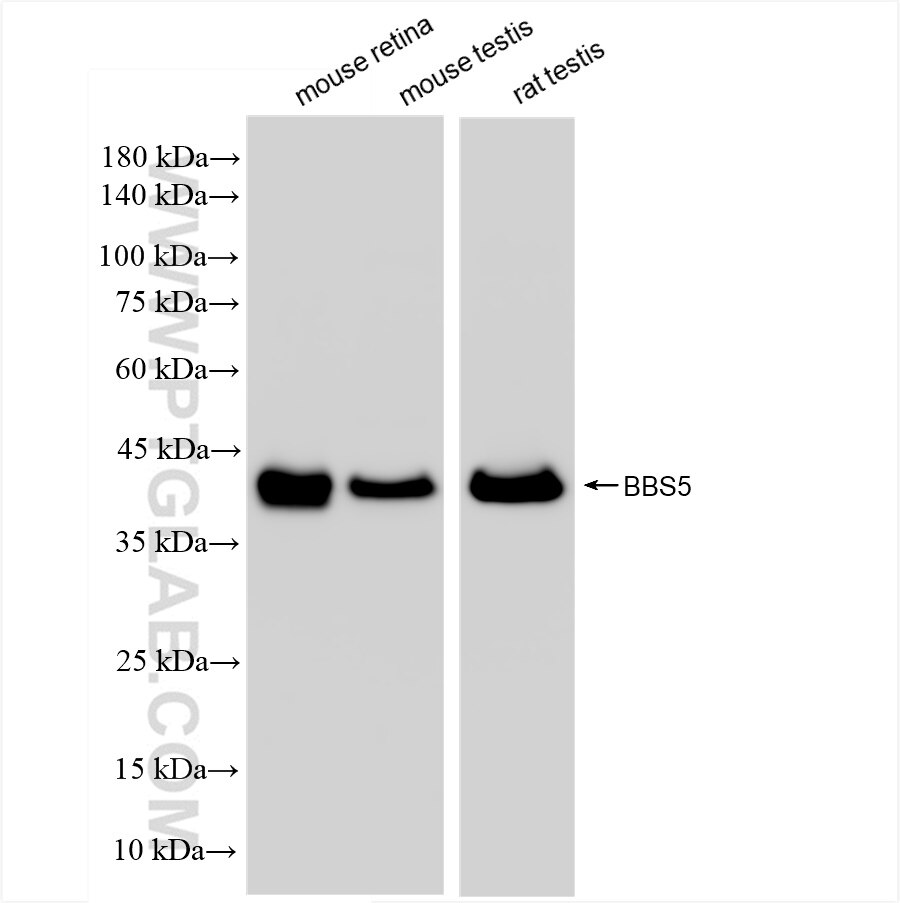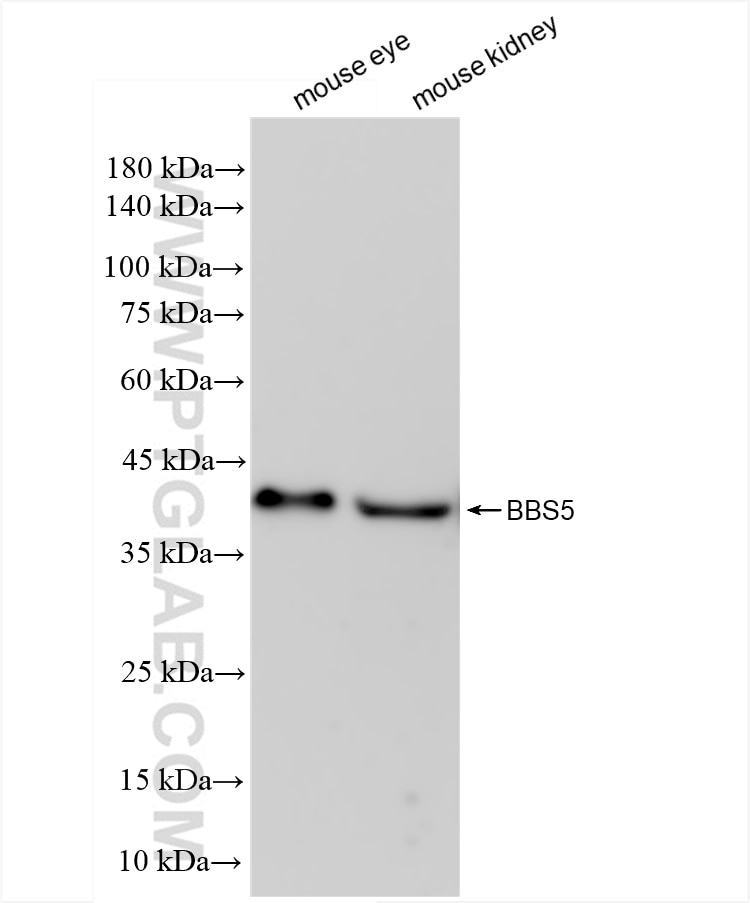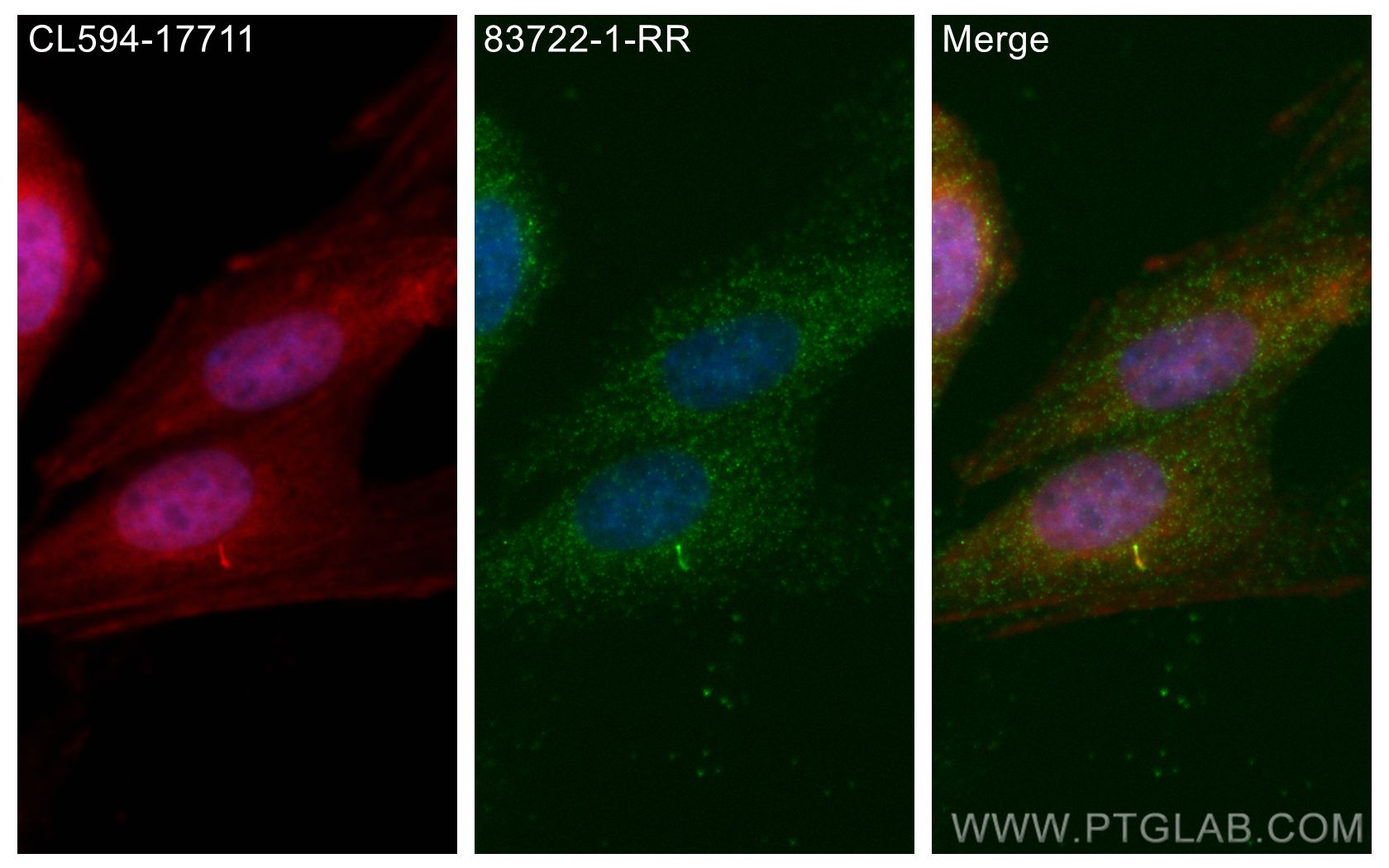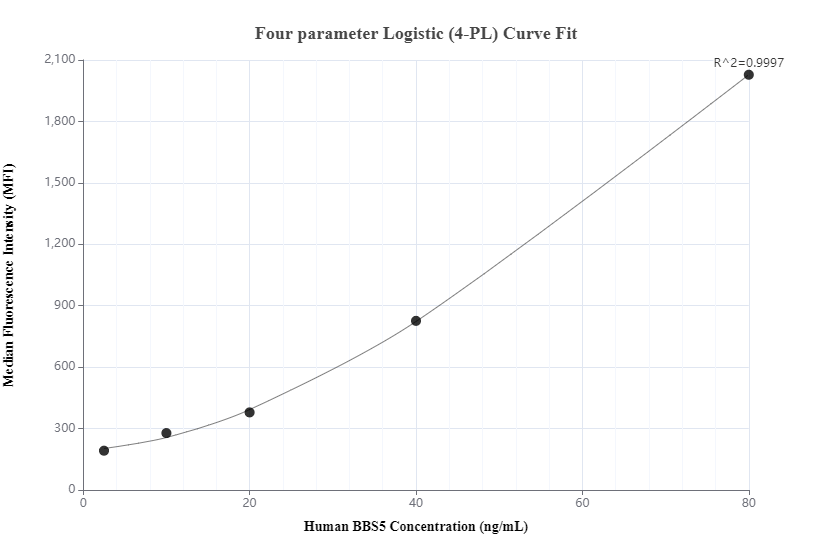Product Information
83722-1-PBS targets BBS5 as part of a matched antibody pair:
MP00703-1: 83722-2-PBS capture and 83722-1-PBS detection (validated in Cytometric bead array)
Unconjugated rabbit recombinant monoclonal antibody in PBS only (BSA and azide free) storage buffer at a concentration of 1 mg/mL, ready for conjugation. Created using Proteintech’s proprietary in-house recombinant technology. Recombinant production enables unrivalled batch-to-batch consistency, easy scale-up, and future security of supply.
This conjugation ready format makes antibodies ideal for use in many applications including: ELISAs, multiplex assays requiring matched pairs, mass cytometry, and multiplex imaging applications.Antibody use should be optimized by the end user for each application and assay.
| Tested Reactivity | human, mouse, rat |
| Host / Isotype | Rabbit / IgG |
| Class | Recombinant |
| Type | Antibody |
| Immunogen |
CatNo: Ag6153 Product name: Recombinant human BBS5 protein Source: e coli.-derived, PGEX-4T Tag: GST Domain: 1-341 aa of BC044593 Sequence: MSVLDALWEDRDVRFDLSAQQMKTRPGEVLIDCLDSIEDTKGNNGDRGRLLVTNLRILWHSLALSRVNVSVGYNCILNITTRTANSKLRGQTEALYILTKCNSTRFEFIFTNLVPGSPRLFTSVMAVHRAYETSKMYRDFKLRSALIQNKQLRLLPQEHVYDKINGVWNLSSDQGNLGTFFITNVRIVWHANMNDSFNVSIPYLQIRSIKIRDSKFGLALVIESSQQSGGYVLGFKIDPVEKLQESVKEINSLHKVYSASPIFGVDYEMEEKPQPLEALTVEQIQDDVEIDSDGHTDAFVAYFADGNKQQDREPVFSEELGLAIEKLKDGFTLQGLWEVMS Predict reactive species |
| Full Name | Bardet-Biedl syndrome 5 |
| Calculated Molecular Weight | 39 kDa |
| Observed Molecular Weight | 39 kDa |
| GenBank Accession Number | BC044593 |
| Gene Symbol | BBS5 |
| Gene ID (NCBI) | 129880 |
| Conjugate | Unconjugated |
| Form | Liquid |
| Purification Method | Protein A purification |
| UNIPROT ID | Q8N3I7 |
| Storage Buffer | PBS only, pH 7.3. |
| Storage Conditions | Store at -80°C. |
Background Information
BBS5 encodes a protein that has been directly linked to Bardet-Biedl syndrome. Bardet-Biedl syndrome (BBS) is an autosomal recessive condition characterised by rod-cone dystrophy, postaxial polydactyly, central obesity, mental retardation, hypogonadism, and renal dysfunction. Other associated clinical findings in BBS patients include diabetes, hypertension and congenital heart defects. BBS expression varies both within and between families and diagnosis is often difficult. Experimentation in non-human eukaryotes suggests that BBS5 is expressed in ciliated cells and that it is required for the formation of cilia. Alternate transcriptional splice variants have been observed but have not been fully characterized.










